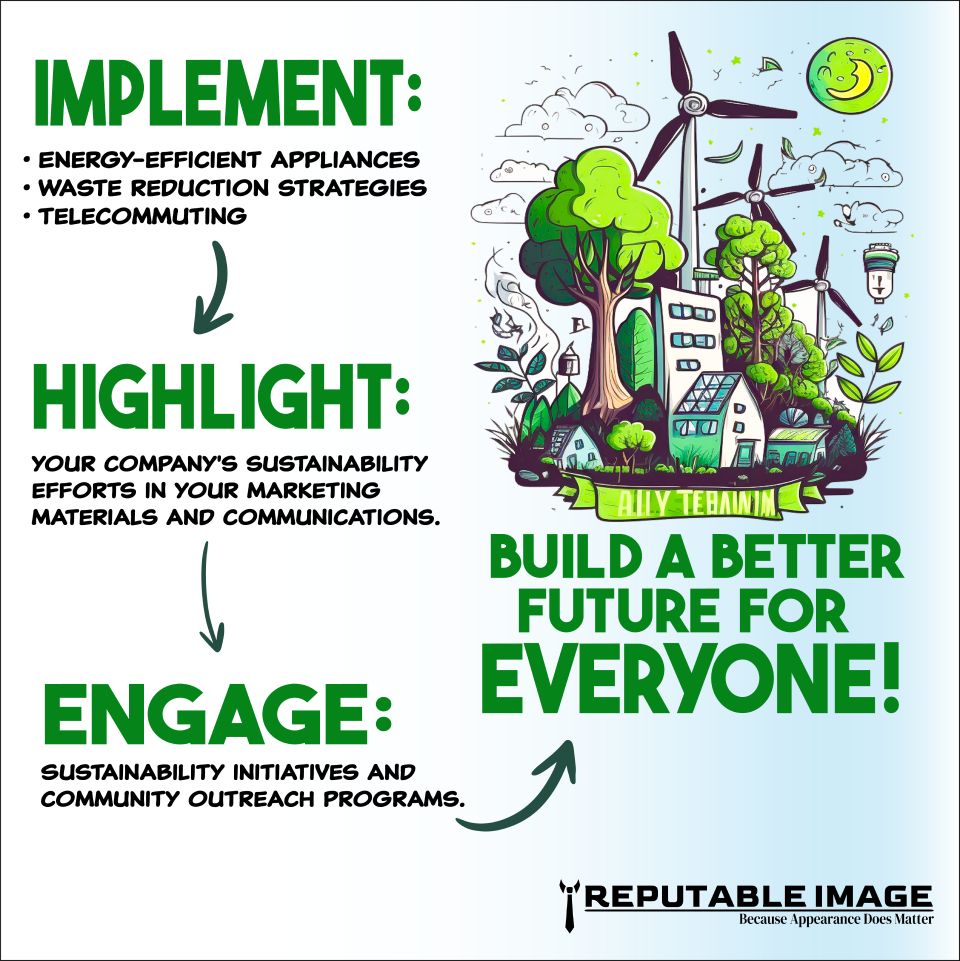
GREEN IS NO JOKE:
Tips on sustainability for small businesses
Welcome to the era of conscious commerce, where businesses are no longer judged solely by their bottom line, but by their commitment to sustainability. In a world grappling with environmental challenges, the role of small businesses in driving positive change has never been more critical. From energy-efficient practices to waste reduction initiatives, let’s explore how small businesses can make a big impact on the planet while thriving in the marketplace.
Energy Efficiency: Invest in energy-efficient appliances, lighting, and HVAC systems to reduce energy consumption and lower utility bills. Encourage employees to turn off lights and equipment when not in use and consider implementing smart energy management systems.
Sustainable Procurement: Source products and materials from sustainable and eco-friendly suppliers whenever possible. Look for certifications such as Fair Trade, Organic, or Forest Stewardship Council (FSC) certification to ensure responsible sourcing practices.
Waste Reduction: Implement waste reduction strategies such as recycling, composting, and reducing single-use plastics. Encourage employees to use reusable containers and utensils and consider partnering with waste management companies to optimize recycling and composting programs.
Transportation: Encourage sustainable transportation options for employees, such as carpooling, biking, or public transit. Offer incentives for using eco-friendly modes of transportation, such as subsidies for public transit passes or bike-sharing programs.
Telecommuting: Embrace remote work options and telecommuting policies to reduce the need for employees to commute to the office every day. Remote work not only reduces carbon emissions but also improves work-life balance and productivity.
Green Marketing: Highlight your company's sustainability efforts in your marketing materials and communications. Showcase eco-friendly products, initiatives, and partnerships to attract environmentally conscious customers and differentiate your brand.
Water Conservation: Implement water-saving measures such as installing low-flow faucets and toilets, fixing leaks promptly, and using drought-resistant landscaping. Educate employees about the importance of water conservation and encourage responsible water usage in the workplace.
Community Engagement: Get involved in local sustainability initiatives and community outreach programs. Partner with environmental organizations, participate in clean-up events, and support green initiatives in your area to make a positive impact on the community and environment.
Continuous Improvement: Regularly assess and review your sustainability practices to identify areas for improvement. Set measurable goals and benchmarks, track progress over time, and engage employees in the process to foster a culture of sustainability within your organization.
Collaboration: Collaborate with other businesses, suppliers, and stakeholders to share best practices, resources, and solutions for sustainability. Join industry associations, attend conferences, and participate in sustainability networks to stay informed and connected within your industry.

By putting these tips into action, small businesses can really shake things up and pave the way for a more sustainable future. They'll not only shrink their carbon footprint but also cut down on costs and boost their bottom line. Plus, by going green, they'll attract a whole new crowd of eco-conscious customers who are keen about supporting businesses with a conscience. It's all about making a difference, one step at a time, and showing the world that small businesses can be big players in the fight against climate change.

